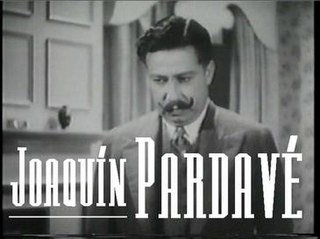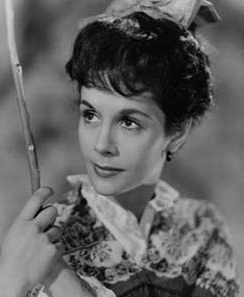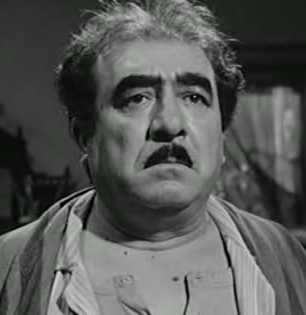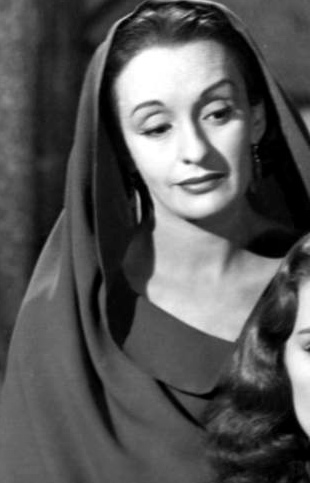Related Research Articles

Germán Genaro Cipriano Teodoro Gómez Valdés y Castillo, known professionally as Tin-Tan, was a Mexican actor, singer and comedian who was born in Mexico City but was raised and began his career in Ciudad Juarez, Chihuahua. He often displayed the pachuco dress and employed pachuco slang in many of his movies, some with his brothers Manuel "El Loco" Valdés and Ramón Valdés. He made the language of the border Mexican, known in Spanish as fronterizos pachucos, famous in Mexico. A "caló" based in Spanglish, it was a mixture of Spanish and English in speech based on that of Mexicans on the Mexican side of the border, specifically Ciudad Juarez.

Libertad Lamarque Bouza was an Argentine actress and singer, one of the icons of the Golden Age of Argentine and Mexican cinema. She achieved fame throughout Latin America, and became known as "La Novia de América". By the time she died in 2000, she had appeared in 65 films and six telenovelas, had recorded over 800 songs and had made innumerable theatrical appearances.

Joaquín Pardavé Arce was a Mexican film actor, director, songwriter and screenwriter of the Golden Age of Mexican cinema. He was best known for starring and directing various comedy films during the 1940s. In some of them, Pardavé paired with one of Mexico's most famous actresses, Sara García. The films in which they starred are El baisano Jalil, El barchante Neguib, El ropavejero, and La familia Pérez. These actors had on-screen chemistry together, and are both noted for playing a wide variety of comic characters from Lebanese foreigners to middle-class Mexicans.

Luis Alcoriza de la Vega was a respected Mexican screenwriter, film director, and actor.

Miguel Zacarías Nogaim was a Mexican film director, producer, and writer.

Delia Amadora García Gerboles better known as Delia Garcés was an Argentine film actress of the Golden Age of Argentine Cinema (1940–1960). She made almost 30 appearances in film between 1937 and 1959 and acted on stage from 1936 to 1966. She won the Premios Sur Best Actress award three times from the Argentine Academy of Cinematography Arts and Sciences, as well as the Argentine Film Critics Association's Silver Condor Award for Best Actress, the Premios Leopold Torre Nilsson, Premio Pablo Podestá, and the inaugural ACE Platinum Lifetime Achievement Award from the Asociación de Cronistas del Espectáculo.

Carlos Cores was an Argentine film actor, and film director.

Rosario "Saro" Urzì was an Italian actor. He is best known for his roles in the films In the Name of the Law (1949), The Railroad Man (1956), Seduced and Abandoned (1964), which earned him a Cannes Film Festival Award for Best Actor, and The Godfather (1972).
Arturo Soto Rangel was a Mexican film, television, and stage actor. Soto was best known for appearing in over 250 Mexican films. He appeared in one American movie, The Treasure of the Sierra Madre, which won three Academy Awards and starred Humphrey Bogart, Walter Huston, Tim Holt, Bruce Bennett, and many other successful actors. Soto last appeared on television in 1963, where he starred in Voy de gallo.

Rosa Méndez Leza, known professionally as Rosenda Monteros, was a Mexican actress. She studied drama under Seki Sano. To American audiences, she is best known for her role as Petra in The Magnificent Seven. She had a prolific film career north and south of the U.S.–Mexican border.

Guadalupe Bracho Pérez-Gavilán, known professionally as Andrea Palma, was a Mexican actress. She was considered the first major female star of the Mexican cinema after her role in the Mexican film La Mujer del Puerto (1934).
Isabela Corona was a Mexican actress. She debuted during the first decade of the Golden Age of Mexican cinema.

Diana Bracho is a Mexican actress.

Fernando "Papi" Cortés was a Puerto Rican film actor, writer and director. He was born in San Juan, Puerto Rico, but he spent most of his adult life in Mexico City, where he died. On 1932, while in New York City, Fernando Cortés married Puerto Rican childhood friend María del Pilar Cordero, who adopted the stage name of Mapy Cortés. The couple soon traveled to Spain with a Cuban theatrical troupe. They worked on the Spanish stage, radio and film until the outbreak of the Civil War in 1936. Fernando progressively began to take a backseat as actor and baritone and focused on promoting the career of his wife Mapy, who became a noted vedette in Barcelona.
The 8th Moscow International Film Festival was held from 10 to 23 July 1973. The Golden Prizes were awarded to the Soviet film That Sweet Word: Liberty! directed by Vytautas Žalakevičius and the Bulgarian film Affection directed by Ludmil Staikov.

Rita Macedo was a Mexican actress and dressmaker. She was nominated for an Ariel Award for her 1956 performance in "Ensayo de un crimen" and in 1991 for a TVyNovelas Prize for "Alcanzar una estrella". She won the Best Actress Ariel Award in 1972 for "Tú, yo, y nosotros". She was married to a pioneer of Mexican radio, television and film, Luis de Llano Palmer, by whom she had two children, Julissa, an actress and musician, and Luis de Llano Macedo, renowned telenovela producer. She also was instrumental in bringing many works of international writers to the Mexican stage.
Bracho is a Spanish surname and can refer to the following people:
Take Me in Your Arms is a 1954 Mexican drama film directed by Julio Bracho. Starred by Ninón Sevilla and Armando Silvestre.

Manuel Dondé was a Mexican film actor. He frequently played villains during his long film career.
Mauricio de la Serna was a Mexican film director, screenwriter, and producer.
References
- ↑ Bracho Gavilán, Julio (Spanish)
- ↑ Peter Standish, Steven M. Bell: Culture and customs of Mexico, 2004, p. 193.
- ↑ Robert, Luis. Biografía de Rosenda Monteros. Archivo de telenovelas y biografias.
- ↑ "8th Moscow International Film Festival (1973)". MIFF. Archived from the original on 16 January 2013. Retrieved 25 December 2012.